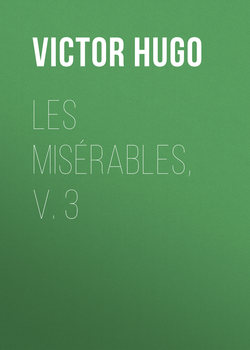Читать книгу Les Misérables, v. 3 - Victor Hugo, Clara Inés Bravo Villarreal - Страница 14
BOOK II
LE GRAND BOURGEOIS
CHAPTER I
NINETY YEARS AND TWO-AND-THIRTY TEETH
ОглавлениеThere are still a few persons residing in the Rue Boucherat, Rue de Normandie, and Rue de Saintonge, who can remember a gentleman of the name of M. Gillenormand, and speak kindly about him. This good man was old when they were young. This profile has not entirely disappeared, with those who look sadly at the vague congregation of shadows called the past, from the labyrinth of streets near the Temple, which in the reign of Louis XIV. received the names of all the provinces of France, exactly in the same way as in our time the names of all the capitals of Europe have been given to the streets in the new Tivoli quarter; a progression, by the bye, in which progress is visible.
M. Gillenormand, who was most lively in 1831, was one of those men who have become curious to look on solely because they have lived a long time, and are strange because they once resembled everybody and now no longer resemble any one. He was a peculiar old man, and most certainly the man of another age, the genuine, perfect bourgeois of the 18th century, who carried his honest old bourgeoisie with the same air as Marquises did their marquisate. He had passed his ninetieth year, walked upright, talked loudly, saw clearly, drank heartily, and ate, slept, and snored. He still had his two-and-thirty teeth, and only wore spectacles to read with. He was of an amorous temper, but said that for the last ten years he had decidedly and entirely given up the sex. "He could not please," he said: and he did not add "I am too old," but "I am too poor. If I were not ruined – he, he, he!" In fact, all that was left him was an income of about fifteen thousand francs. His dream was to make a large inheritance, and have one hundred thousand francs a year, in order to keep mistresses. As we see, he did not belong to that weak variety of octogenarians, who, like M. de Voltaire, were dying all their life; his longevity was not that of the cracked jug, and this jolly old gentleman had constantly enjoyed good health. He was superficial, rapidly and easily angered, and he would storm at the slightest thing, most usually an absurd trifle. When he was contradicted, he raised his cane and thrashed his people, as folk used to do in the great age. He had a daughter, upwards of fifty years of age and unmarried, whom he gave a hearty thrashing to when he was in a passion, and whom he would have liked to whip, for he fancied her eight years of age. He boxed his servant's ears energetically, and would say, "Ah, carrion!" One of his oaths was, "By the pantoflouche of the pantouflochade!" His tranquillity was curious; he was shaved every morning by a barber who had been mad and who detested him, for he was jealous of M. Gillenormand on account of his wife, who was a pretty little coquette. M. Gillenormand admired his own discernment in everything, and declared himself extremely sagacious. Here is one of his remarks, – "I have in truth some penetration. I am able to say, when a flea bites me, from what woman I caught it." The words he employed most frequently were "the sensitive man" and "nature," but he did not give to the latter word the vast acceptation of our age. But there was a certain amount of homeliness in his satirical remarks. "Nature," he would say, "anxious that civilization may have a little of everything, even gives it specimens of amusing barbarism. Europe has specimens of Asia and Africa in a reduced size; the cat is a drawing-room tiger, the lizard a pocket crocodile. The ballet girls at the opera are pink savages; they do not eat men, but they live on them: the little magicians change them into oysters and swallow them. The Caribs only leave the bones, and they only leave the shells. Such are our manners; we do not devour, but we nibble; we do not exterminate, but we scratch."
